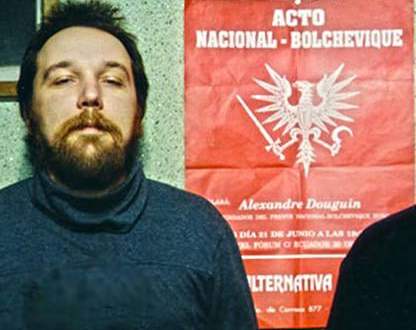A popular Twitter thread denounces basically every American party organization for a variety of reasons (https://twitter.com/QuacksAntifa*Grl/status/1540526948560035842?t=uO6vWZCEkGk1JSISY-O2dA&s=19) but one source I was curious about was the one linked here. Does this seem like an accurate portrayal of the modern organizing scene?
Edit, I had to break the link to avoid the slur filter, remove the asterisk
idk honestly sounds like fed shit telling everyone a bunch of what not to do and who not to work with while offering no real alternatives or suggestions.
That was my perception, but a bunch of activists groups and journalists who lean libleft have been shitting on PSL, CPUSA, and the like during the runup to disruption. Honestly does feel like fed shit
libleft
I'm sorry I can't take anyone that uses political compass terminology unironically seriously.
The origins of Russian National Bolshevism differ from interwar German National Bolshevism and have their roots in the Russian Civil War which followed the Russian Revolution of 1917 and the subsequent counter-revolutionary power grab by the Bolshevik Party, when Lenin made concessions to Russian nationalists to stabilize the newly formed Soviet Union and many Tsarist White movement members and defectors from the proto-fascist Black Hundreds switched sides and joined the Bolsheviks.
[Note: Many prominent revolutionaries at that time condemned the counter-revolutionary acts and the authoritarianism of the Bolsheviks, with Emma Goldman becoming disillusioned with the situation in Russia and denouncing the Soviet Union as state capitalist, Otto Rühle saying that the struggle against fascism begins with the struggle against Bolshevism, and Russian Anarchist Voline, who had participated in the Russian and Ukrainian revolutions, labeling the USSR under Stalin as red fascism.]
... Following the failure of the Spartacist uprising in Germany and Stalin’s victory in the power struggle which followed Lenin’s death in the Soviet Union, the mixture of nationalism and Marxism-Leninism of the Soviet Union developed into some kind of National Bolshevism as result of the USSR’s adoption of the “Socialism in One Country” policy in 1925, the adoption of which was also partly motivated by the need to reassure Germany that the Soviet Union’s priority was to maintain the Treaty of Rapallo instead of exporting revolution.
https://youtu.be/Gxep5Z1h3_U?t=4



